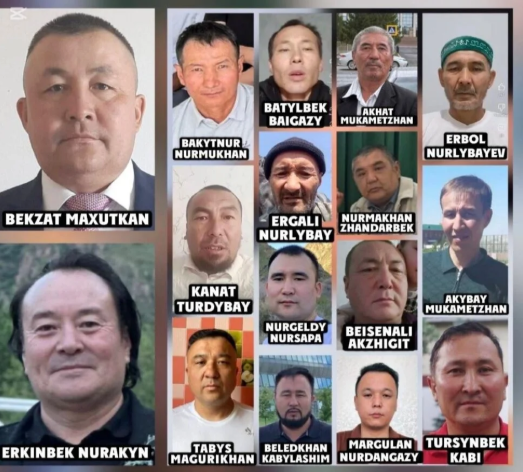Pakistan: Weaponizing Blasphemy Laws for Stealing Land and Property
- info775148
- 1. 7.
- Minut čtení: 3
Sometimes, false accusations arise because neighbors covet the accused’s belongings.
July 1, 2025
The blasphemy laws in Pakistan are increasingly being utilized as instruments of social control and economic exploitation, often targeting marginalized communities and enabling individuals to settle personal scores. A report published on June 9 by Human Rights Watch delves into the structural inequities inherent in these laws, detailing their pervasive societal consequences and examining specific cases that attest to their misuse.
Pakistan’s blasphemy statutes, which stipulate capital punishment, are inherently discriminatory, creating a framework conducive to violence and persecution, particularly against religious minorities. The threshold for accusation is alarmingly low; even unfounded allegations can incite mob violence, leading to significant community dislocation. Over the past decade, vigilante groups have perpetrated extrajudicial killings in response to blasphemy accusations, underscoring the severe societal repercussions of these laws.
The advent of social media has exacerbated the situation, transforming blasphemy accusations into mechanisms for extortion and land appropriation. Organized networks exploit platforms like WhatsApp and Facebook to fabricate charges, often in collusion with corrupt officials. Notorious cases reflecting this trend include hundreds of individuals from diverse backgrounds who have faced baseless accusations.
The report elucidates how these laws are systematically weaponized for economic gain, particularly targeting minority groups such as Christians and Ahmadis for forced evictions and land seizures. For instance, inflammatory accusations regularly incite mob violence that displaces entire communities, leaving their property open to unlawful occupation.
Several case studies spotlight the malicious intent underpinning blasphemy allegations. In 2012, Rimsha Masih, a 14-year-old Christian girl with Down syndrome living near Islamabad, was falsely accused of desecrating the Quran. This accusation provoked riots and forced the evacuation of approximately 300 families, despite later evidence demonstrating that the accuser had fabricated the allegation to expel Christians from the locality.
In 2013, a mob of 3,000 assaulted Joseph Colony, a Christian enclave in Badami Bagh, Lahore District, following a blasphemy allegation. The resulting destruction left over 100 houses in ruins and displaced residents, illustrating the use of blasphemy laws as instruments for land acquisition.
In 2023, Maryam, another Christian woman from Lahore District, faced unfounded blasphemy charges from a neighbor who sought to coerce her into selling her property. The lack of credible evidence did not prevent disruption to her life, ultimately forcing her to sell her home at a loss.
The failures of Pakistan’s legal and administrative systems to guard against these abuses are pronounced. Corruption, archaic land records, and deep-seated biases exacerbate the vulnerability of accused individuals. Even when judicial bodies recognize malicious intent, as evidenced in a 2014 Supreme Court ruling, the prospect for systemic reform remains dim.
Religious minorities, particularly Ahmadis, Christians, and Shia Muslims, experience heightened risks. Accusations often precipitate violence, extortion, and displacement, compounded by inadequate police protection and lack of judicial accountability.
Illustrative of this trend are the cases of Farhan, a blind man accused of blasphemy in 2024 and extorted for $5,000, and Parvez Masih, a Christian school headmaster in Sialkot targeted by a rival school owner. Although acquitted, he underwent years of legal strife. Similarly, Ashiq, a Christian man from Lahore who married a Muslim woman in 2021, was subject to death threats and economic marginalization under the guise of religious vengeance.
Nadia, a Christian beautician, was driven from her neighborhood in 2019 after a competitor instigated a mob attack on her salon through blasphemy allegations. Firoz, a school principal, faced harassment and extortion following fabricated accusations against a teacher at his institution in 2021.
These blasphemy allegations are increasingly employed as avenues for extortion. Organized entities often manufacture charges to extract financial gain or seize property, leaving both Muslim and non-Muslim victims with limited avenues for recourse, as defending against such allegations frequently invites further persecution.
Personal narratives from victims illustrate the profound and lasting impact of these wrongful accusations. The accused often endure lifelong consequences, including social ostracism, financial decimation, and physical insecurity. Many are compelled to abandon their homes and communities, while others face protracted legal battles and continuous harassment.
The report offers further evidence that the blasphemy laws in Pakistan have evolved into tools of oppression that facilitate economic exploitation. Urgent and comprehensive reform is crucial to uphold justice and safeguard vulnerable populations from systematic abuses.
Source: bitterwinter.org











Komentáře